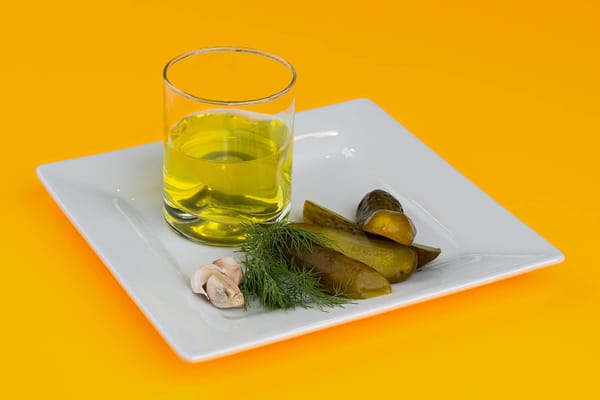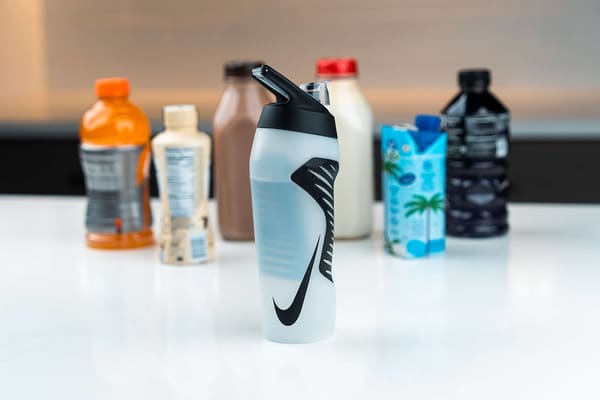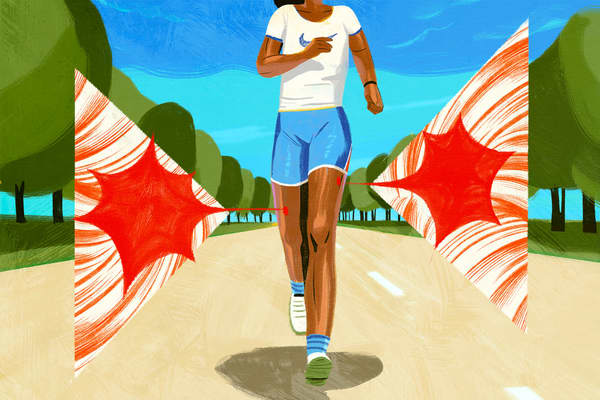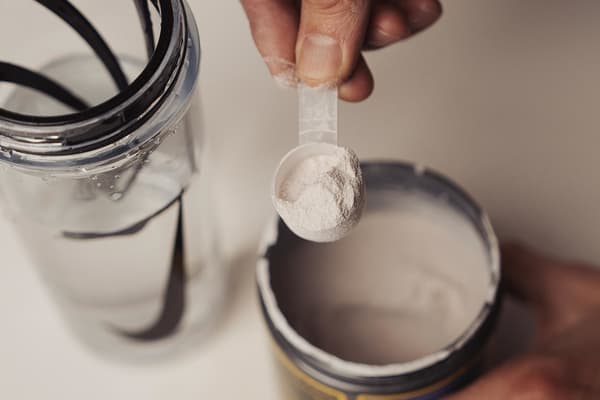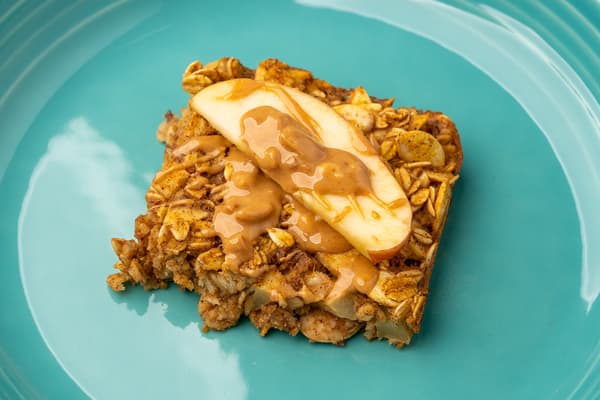Dietitian-Approved, High-Protein Snacks to Eat After a Workout
Nutrition
A registered dietitian explains the importance of eating protein after a workout—and suggests some snack ideas, too.

After a workout, it's imperative that you reach for food that's rich in protein. But, why? For starters, protein is essential for the growth and recovery of muscles and tissues, immune function, hormone balance and more.
After eating a protein-rich food, those proteins are broken down to their smallest building blocks called amino acids. For context, there are 20 types of amino acids, the majority of which the body can make on its own. However nine of them, known as essential amino acids, can only be sourced through food.
How much protein should you eat a day?
In general, the amount of protein needed throughout the day depends on age, sex, level of activity, body weight and, of course, desired goals. The Recommended Dietary Allowance (RDA) for protein for a healthy adult who is sedentary is 0.8 grams of protein per kilogram of body weight per day. By this standard, an adult weighing 68kg should consume about 55 grams of protein per day. Bear in mind that previously mentioned factors like age, sex and activity levels can impact this.
Athletes, active individuals or people looking to increase muscle mass with exercise will need higher levels of protein than someone who is mostly sedentary. According to a review published in a 2017 issue of the International Society of Sports Nutrition, aiming to eat between 1.4 to 2 grams of protein per kilogram of body weight per day is sufficient for most people who regularly work out. According to the Physical Activity Guidelines for Americans, it's recommended that adults engage in at least 150 minutes of moderate-intensity exercise each week.
There are varying opinions about how much protein should be consumed post-workout and how much protein can be absorbed from one meal. A 2018 review in the Journal of the International Society of Sports Nutrition suggested that the amount of protein that can be utilised in one sitting for muscle synthesis (the process in which protein repairs muscle damage from exercise) might be somewhere between 20 to 40 grams in one meal. For perspective, that's the difference between an approximately 85-gram and a 170-gram piece of chicken breast.
What are the best high-protein snacks to refuel with after a workout?
Rather than getting into the weeds of how many grams of protein to consume after a workout, know that the type and quality of protein you're eating may be even more important. In other words, consider striving for foods that fall under the complete protein umbrella. Remember, protein is made up of a string of amino acids and a complete protein contains all of the nine essential amino acids in appropriate ratios.
Foods that are complete proteins include:
- Eggs
- Fish
- Cow's milk
- Red meat
- Poultry
- Tofu
- Peas
- Quinoa
In fact, it's widely accepted and suggested, as noted in the 2017 review from the International Society of Sports Nutrition, that optimal muscle gains are a product of eating complete protein foods.
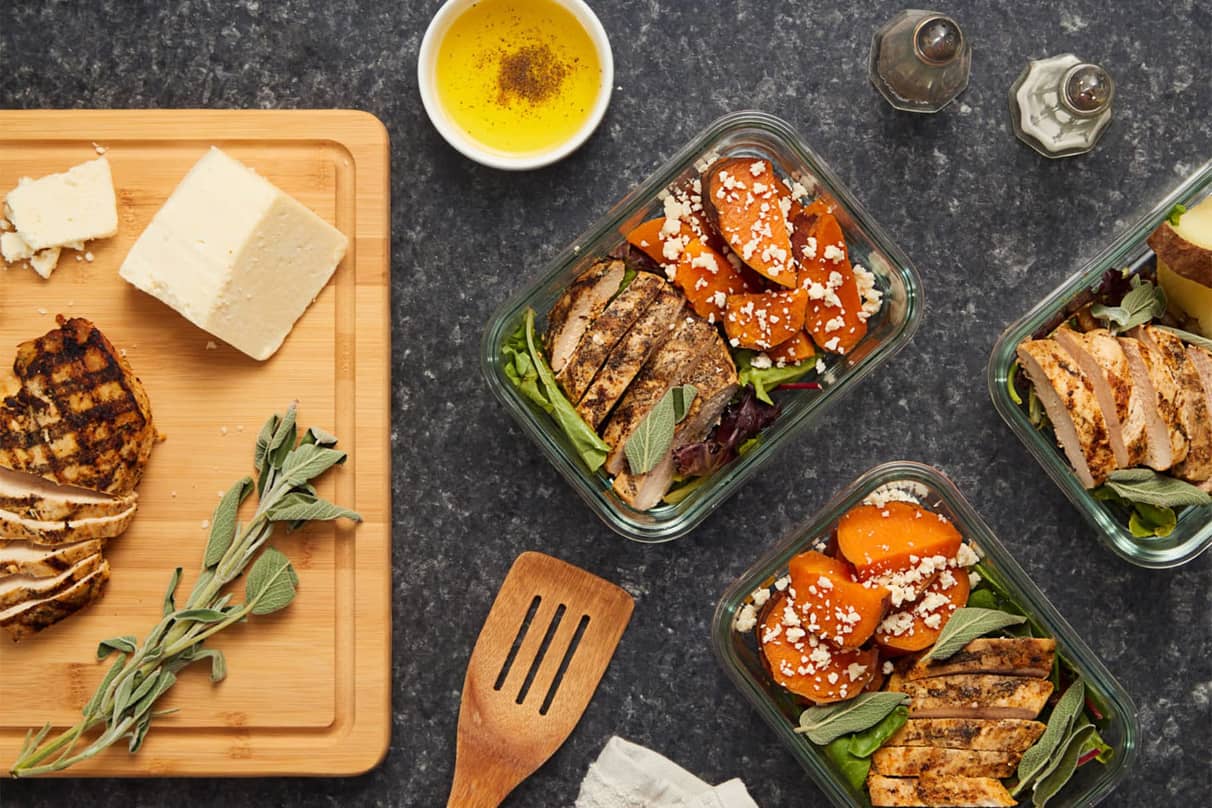
What are some of the easiest ways to consume complete proteins post-exercise?
Protein powders, specifically whey protein powder, are the quickest and a common choice. Adding powder to water or milk is a fast and portable way to consume anywhere from 15 to 30 grams of protein (depending on the brand of powder).
Other quick protein snacks include:
- Hard-boiled eggs
- Sliced deli meat
- Greek yoghurt
- String cheese
- Canned tuna
- Jerky
The serving size of the above high-protein snacks will depend on your overall protein intake goal. For example, someone doing a moderate-intensity yoga class might only need to replenish with fewer than 20 grams of protein, which could come from two hard-boiled eggs. Whereas someone who just finished a one-hour, heavy weight-lifting session will probably need 20 grams or more of protein. This can look like one serving of Greek yoghurt with nuts and a hard-boiled egg.
For vegans, the quest to find high-protein snacks can be more difficult. Many vegan protein options such as seeds, beans, nuts and wholegrains are not complete, meaning they don't contain all of the nine essential amino acids. But, those who follow a vegan lifestyle can still easily hit their protein goals. By combining two different incomplete proteins, you can consume all of the amino acids needed for muscle repair. An example? Consider putting peanut butter on a slice of whole-grain bread. Together, these two foods can offer anywhere between 12 and 15 grams of protein.
(Related: What Is an Iron Deficiency and How Do I Know If I Have It?)
A high-protein snack may be important after exercise, but protein should not necessarily be the only macronutrient you focus on—fats and carbs are also key for recovery. A 2010 article in the Journal of Sports and Medicine looked at the type of nutrition consumed after exercise and its effect on muscle growth as well as the creation of glycogen (back-up fuel that's stored in the muscles for exercise).
For people who participate in endurance sports (Think: long distance-running, cycling and swimming) or those who focus on weight training and quick bursts of cardio in the gym, refuelling with carbohydrates and protein is especially helpful in promoting both muscle recovery and growth. An easy way to include protein and carbohydrates together is by making a smoothie with fruit and protein powder, adding fruit to Greek yoghurt or enjoying half a turkey sandwich.
As always, consider working with a dietitian to help map out a nutrition plan tailored to your needs.
When is the best time to consume a high-protein snack, post-exercise?
A 2017 position paper on nutrient timing, published in the Journal of the International Society of Sports Nutrition, suggested that eating protein immediately (or within two hours) after exercise can help stimulate muscle growth. However, the 2017 review on protein and exercise noted that the window for muscle growth post-exercise can last at least 24 hours following a workout.
Post-exercise, the bottom line is this: make sure you include enough protein in your diet—especially after a workout. Munching on a high-protein snack with some carbohydrates is a great way to ensure muscle recovery and growth. Not to mention, it's also an excellent way to bridge the gap between mealtimes. Snacks can range from store cupboard items and portables (jerky or protein powder) to creative and a bit more involved (like a yoghurt parfait or a small tofu salad). But the best high-protein snack is the one that you enjoy consistently.
Words by Sydney Greene, MS, RDN

